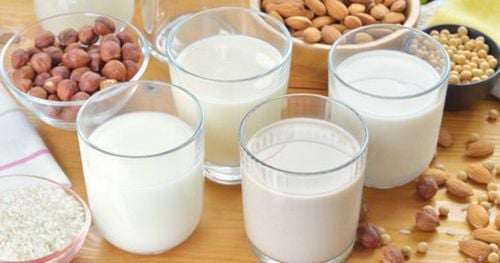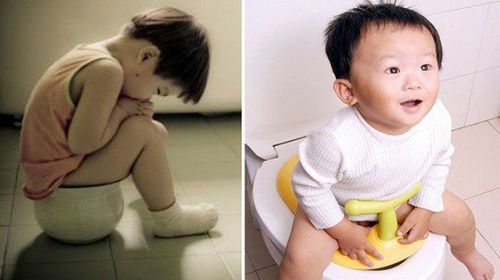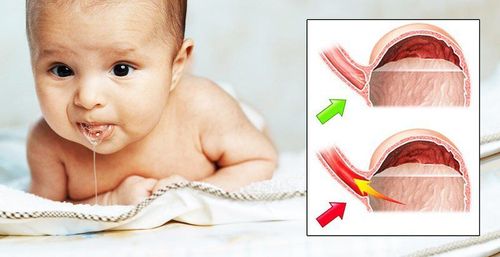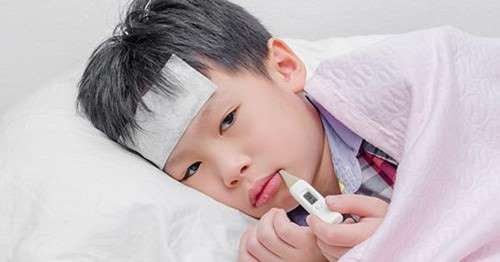This is an automatically translated article.
The article was professionally consulted with Doctor Tran Mai Phuong - Department of Pediatrics - Neonatology, Vinmec Central Park International General Hospital.1. What is cow's milk protein allergy?
Cow's milk protein allergy is the body's immune response to the protein components in cow's milk and products derived from cow's milk. Cow's milk protein allergy has the highest incidence of all food allergies that children often encounter, they appear in about 2-7.5% of children in this age group. Cow's milk protein allergy usually occurs a few minutes to a few hours after a child consumes milk or dairy products, and it most often goes away by the time the child is 3 years old.Trắc nghiệm: Sự phát triển tinh thần, vận động của bé thế nào là đúng chuẩn?
Khi nào bé biết nói, biết hóng chuyện hay biết cầm cốc là "đúng chuẩn"? Điểm xem bạn biết được bao nhiêu mốc phát triển tinh thần, vận động "đúng chuẩn" của bé nhé!The following content is prepared under supervision of Thạc sĩ, Bác sĩ y khoa, Ma Văn Thấm , Nhi , Phòng khám Đa khoa Quốc tế Vinmec Dương Đông(Phú Quốc)
2. Causes of cow's milk protein allergy in children
As mentioned above, cow's milk protein allergy occurs when the child's immune system thinks that the protein components in cow's milk are harmful to the body, causing the body to automatically produce antibodies. The IgE immune system neutralizes these proteins (allergens). There are 2 main proteins in milk that can cause an allergic reaction:Casein : present in the solid part of the curd Whey : present in the liquid part of the milk after the curd has curdled In contact with The next cow's milk protein, IgE antibodies in the baby's body recognize them and tell the immune system to release histamine and other allergy-causing chemicals, leading to a variety of allergy signs and symptoms in children such as runny nose, itchy eyes, dry throat, hives, rash, difficulty breathing, nausea, diarrhea, even anaphylaxis ...

3. How to recognize children allergic to cow's milk protein
Accurate identification of cow's milk protein allergy is quite difficult because the clinical symptoms are very diverse. Symptoms can appear as soon as the baby drinks milk (within 2 hours) called a rapid allergic reaction, or later (more than 48 hours) called a delayed allergic reaction. In general, children allergic to cow's milk protein may have some symptoms in the first weeks of exposure to cow's milk protein such as:Atopic dermatitis Swelling of the lips and eyelids (angioedema) Hives, developing rash (not related to acute infection, medication or other cause) Runny nose, wheezing, persistent cough (not related to infection) Frequent regurgitation and vomiting Diarrhea/constipation, bloating belly. Possible loose stools, blood in the stool Body iron deficiency anemia Persistent fatigue or cramps (colic/stomach cramps) >3 hours per day at least 3 days for 1 week for more than 3 weeks
4. Diagnostic measures
Physicians typically diagnose cow's milk protein allergy based on clinical symptoms and medical history, which is confirmed by performing allergy tests.Take medical history and physical exam:
Family history should be taken because allergies are often genetic. In addition, information such as the child's personal history, the type of milk the child is taking, the time when the symptoms appeared, the types of symptoms and the triggering factors... are all important information for the child. Diagnosis is made with a physical examination of the skin, digestive system, and respiratory system as these are the organs most commonly affected by cow's milk protein allergy.
Allergy testing: In addition, the doctor may order some more allergy tests such as:
Skin prick test with milk Specific IgE test for cow's milk proteins (RAST) Exclusion test/ refeeding: let the baby abstain from milk for 2-4 weeks, if symptoms reduce, re-feed cow's milk formula. If symptoms reappear, the test is positive, and the child has a cow's milk protein allergy. Oral challenge test: gold standard, need to be done in hospital

5. How to handle situations where children are allergic to cow's milk protein
For children <12 months old: At this age, the baby's food is mainly milk and is also the best source of nutrition for the baby. The only way to manage a cow's milk protein allergy is to have your child completely avoid cow's milk and cow's milk products from the diet.However, if breast milk is not available, infant formula containing hydrolysed protein can be used for 2-4 weeks. After the above time, if the allergy situation improves, then give the baby again a regular formula from cow's milk protein. If cow's milk allergy symptoms reappear, continue to maintain the fully hydrolyzed formula for at least 6-12 months. This milk has been clinically tested for safety, nutritional value and is recommended for long-term treatment of cow's milk protein allergy.
Active hydrolysed protein formula contains enough DHA (17mg/100kcal) and ARA (34mg/100kcal) necessary for the development of the baby's brain, vision and immune system.
It is worth noting that cow's milk protein allergy is only temporary and most of the time it goes away by the time the child is 1 to 4 years old. When the child is 1 year old or depending on the child's condition, the reintroduction of nutritional products containing whole cow's milk protein may be considered. If no reaction occurs, the child can resume a normal diet of cow's milk and dairy products.
6. Prevention of cow's milk protein allergy in children
The best way to prevent cow's milk protein allergy in babies is by breastfeeding. Breast milk is full of nutrients and protects babies from the risk of food allergies. In addition, breast milk also has components that protect the infant's immature digestive system against foreign substances such as protein derived from food. If unfortunately the family has no choice or is not able to breastfeed, and the child also belongs to the group with atopy, parents should use actively hydrolyzed protein formula to minimize the possibility of breastfeeding. allergy in children.As a key area of Vinmec Health system, Pediatrics Department always brings satisfaction to customers and is highly appreciated by industry experts with:
Gathering a team of top doctors and nurses in Pediatrics : consists of leading experts with high professional qualifications (professors, associate professors, doctorates, masters), experienced, worked at major hospitals such as Bach Mai, 108.. Doctors All doctors are well-trained, professional, conscientious, knowledgeable about young psychology. In addition to domestic pediatric specialists, the Department of Pediatrics also has the participation of foreign experts (Japan, Singapore, Australia, USA) who are always pioneers in applying the latest and most effective treatment regimens. . Comprehensive services: In the field of Pediatrics, Vinmec provides a series of continuous medical examination and treatment services from Newborn to Pediatric and Vaccine,... according to international standards to help parents take care of their baby's health from birth to childhood. from birth to adulthood Specialized techniques: Vinmec has successfully deployed many specialized techniques to make the treatment of difficult diseases in Pediatrics more effective: neurosurgery - skull surgery, stem cell transplantation. blood in cancer treatment. Professional care: In addition to understanding children's psychology, Vinmec also pays special attention to the children's play space, helping them to have fun and get used to the hospital's environment, cooperate in treatment, improve the efficiency of medical treatment. If you have unusual symptoms, you should be examined and consulted with a specialist.
Please dial HOTLINE for more information or register for an appointment HERE. Download MyVinmec app to make appointments faster and to manage your bookings easily.














